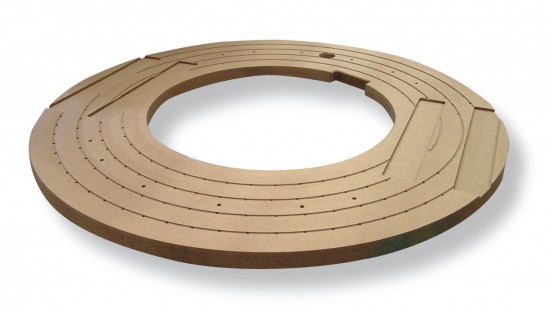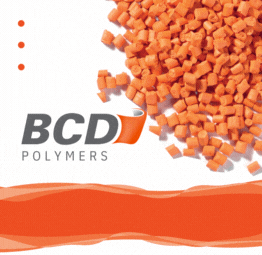Since 2010, Röchling has been offering an insulation material made of high-quality laminated pressboard for the highest demands on electrical properties in the form of Trafoboard®. Trafoboard® HD-PH consists of high-density pressboard layers, made from pure cellulose according to IEC 60641, bonded together using a phenol-based resin matrix.
Röchling has several decades of experience with the phenolic resin for use in oil-filled transformers, thanks to the high-voltage insulation material Lignostone® Transformerwood®, which is also part of the company’s product range. The properties of phenolic resin remain constant in oil-filled transformers even over a very long period of time and thus offer very good conditions for the construction of transformers. Against this background, Röchling developed the phenolic-glued pressboard, Trafoboard® HD-PH
The very low moisture content and the very good drying behaviour characterise the material. Trafoboard® HD-PH meets the mechanical and electrical requirements for laminated pressboard according to IEC 60763-3 type 3.1 A.2 and in part clearly exceeds them. Unlike polyester-glued laminated pressboard, this material does not release styrene during machining. This avoids an unpleasant smell and a possible health hazard for the employees.
Röchling has been cooperating closely with the University of Applied Sciences in Osnabrück for years in the development of insulating materials for transformer construction. This also applies to Trafoboard® HD-PH, which has been approved for many years by renowned manufacturers of oil-filled transformers after thorough examinations of the properties and has been successfully used worldwide as insulating parts, such as rings, platform and fasteners.
To enable transformer manufacturers to make allowance for the requirements for increasingly powerful transformers, Röchling has now further optimised the electrical properties of the material and had them tested in the modern high voltage laboratory of the University of Applied Sciences in Osnabrück. A high partial discharge inception field strength in the bonded seam between the laminated pressboard layers is the greatest challenge for the electrical properties. Consequently, Röchling has further optimised the manufacturing process of Trafoboard® and once again improved the bonded seam of the premium insulating material.
No partial discharge
The University of Applied Sciences in Osnabrück tested 40 samples parallel to the lamination in mineral oil for partial discharge with a measurement precision of <1 pC up to a voltage of 200 kV. The results on Trafoboard® show no continuous partial and only two samples broke down. All the other tested samples were stopped due to a flashover at the sample surface or a breakdown of the test sample. These events occur mainly by the surrounding mineral oil rather than by the sample, since the average event voltage corresponds to the electric strength of the oil. The samples did not show any partial discharge within the material at an average maximum field strength of 10 kV/mm. (See diagram below)
Hans-Jürgen Geers, General Manager Marketing & Technology, explained, "The results confirmed the very good electrical values of our material. The phenolic resin we use results in extraordinarily high breakdown resistance without partial discharge. We are very pleased with this result. We can provide our customers in transformer construction with more advantages for the construction and dimensioning of their transformers."
Greater efficiency and more compact designs
The very good electrical properties make it possible to design even more efficient transformers and contribute to operational safety and reliability. Thanks to the further improved bonding with phenol-based resin matrix, the premium insulation material can be used in higher electrical field areas, permitting even more compact transformer design. Furthermore, the mechanical properties remain at an excellent level even at elevated temperatures, which means that the Trafoboard® HD-PH also ensures increased operational safety in overload operation.
Premium materials for the transformer industry
Röchling insulating materials have been used in transformers for over 60 years, and meet the highest dielectric and thermal requirements. Apart from Trafoboard® HD-PH, Röchling provides the laminated densified wood Lignostone® Transformerwood® for use in oil-filled power transformers. Both materials support transformer manufacturers in the development of powerful and safe transformers.
As a member of the TRANSFORM network, the partner network of European premium suppliers for the transformer industry, Röchling has set itself the task of helping to configure the standards of tomorrow's transformers.



